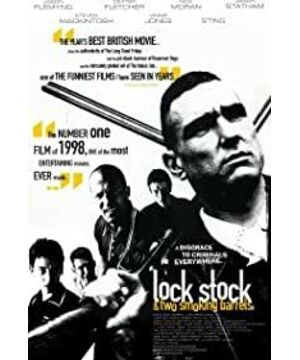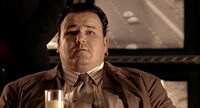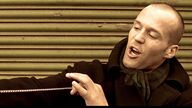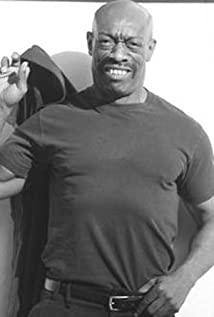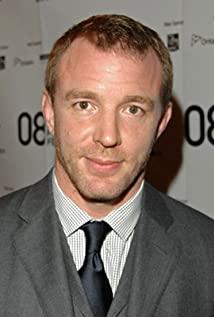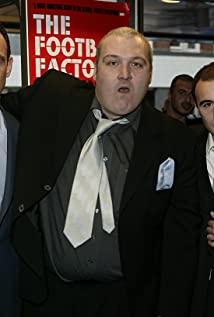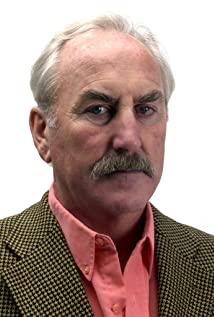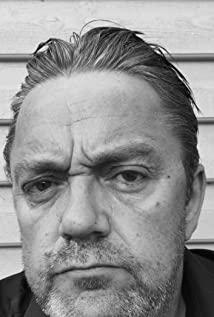with Guy Ritchie, an interview with British director Guy Ritchie,
published in the second issue of "Mr. Fashion" in 2010, "Mr. Reader".
Yes, this is the person who has filmed "Two Old Smokers". I opened a bar with "King and Abduction", an avid London lover, and had a long-term marriage with Madonna...We weren't that gossiping, but we were very interested in him, so we came to the door.
Text: Tom Chiarella at
noon on Friday. Several customers were sitting in the Punch Bowl, Guy Ritchie's co-op bar in Mayfair, London. About six people. Rich came in and wore a gray suit. The tailored suit was a little tight. There was nothing in the pocket. Among these people, only two seemed to be aware of it. No TV or music, but they take care of themselves. Rich stared deeply from under his eyebrows, like a warning from the lights: leave. Leave now. People usually heed this instruction. He is a director after all.
He looked a little nervous, even uncomfortable, standing in the dusty beam of light squeezing through the window. He looks like a black and white painting. Rich didn't speak, and didn't say much; he just confessed to his assistant with full energy that he had a hangover and he wanted to eat some breakfast. We set off. He didn't say anything on the street, but hunched back to a place he knew. About fifteen steps, he said nothing.
But nothing more. Since then, Guy Ritchie hasn't shut up.
You have to understand this: Guy Ritchie says too much. He rarely talks about himself, or his movies, or that famous ex-wife. He doesn't want to tell you what he already knows or what he has just read. He is not too interested in discussing what he has done. Most of the time, he wants to tell you what he is thinking, he chats on his thoughts, talks long, and goes off-topic. Of course, there are traces to follow. For example these: architecture against rationalism pain beer relativism marmalade. Only with Rich, can there be far fewer punctuation than this. Guy Ritchie repeated himself. He cursed, quickly referred to each other, and gave answers that were not like answers. Sometimes, he even seemed to feel the ambiguity.
Guy Ritchie’s cultural effort lies in the fact that he is a 41-year-old testosterone-rich faucet who is noisy, indulges, and pays attention to himself. He is Madonna’s celebrity ex-husband and an energetic, successful independent film author. "Two Smoking Guns" and "Stealing and Snatching", these films feature a group of Richie-type characters as the underclass British criminals, doing nonsensical and wonderful things, engaging in such and other robberies.
These days, he has just completed the first phase of a potential franchise business, a new Sherlock Holmes movie starring Robert Downey Jr. and Jude Law. The question that followed was, why find someone who has a fast and loose filming rhythm and is a bit incomprehensible, and give him the key to dealing with a 122-year-old story, and the production before that depends on the details. The subtlety of processing depends on revolving the story around the most outstanding reasoning mind in the history of popular literature? You have to ask: Why is Rich?
Two pots of tea. Toast and marmalade. His cereal. "Great, this room." He was talking about the restaurant, Richoux, a tea room no more than three blocks away from the bar.
"Is this place old?" I asked. He closed one eye tightly, and his jaw dropped. "I don't know. Maybe 100 years. Maybe not. It's not old in a 1,000-year-old city." I said I like his bar, which is 250 years old-like the fact that I can't see the TV.
"Yes, we dragged those away immediately," he said. The bar is very important to him, and his first thing is to stay in it. "It can be said that the best time I have ever experienced was to have some form of conversation when I was drinking. The British did this very well. But all these terrific abuses in the bar followed us. What's coming? TV sets and jukeboxes and the like. TV is below the mind. It is a secondary mind. You are familiar with the adage:'To be worthy of blessing is to be worthy of a curse'? Hey, some marmalade "
Rich came over to make me tea, and he even stirred it. He sat there with his collar open and his beard cleanly shaved. He was obviously very polite. You could even say that he behaved beautifully. He sent out sugar cubes, not unnatural for a moment.
Time passed by talking about the upcoming "Sherlock Holmes". I have seen some clips. I asked, since when did Holmes become a flat guy who broke other people's ribs and fought in the streets?
"Holmes is a gentleman, but he is also a street boy, can be a little sloppy. I think this story has lost the essence of this part of it." Ritchie said. "I like street life, but I also like magnificent things. Being able to walk around in these two worlds attracts me. In addition, he is the first warrior in the West."
I noticed that Downey's eyes turned Sherlock Holmes, a bit cold, looked almost as if he had some form of Asperger's disease. "He suffers from his sharp functions and dysfunction. He is very bad at social aspects." Rich said. "Of course, one of the great fortunes of autism is that it raises your observation ability above
a mortal." At one point, when the conversation bumped up and down, I told him that he had spied on his bar last night and talked about it. How did the bartender ask me to take off my hat, how did a small group of drunks protect me, yelling at the bartender, warning them not to treat me like a gypsy.
"So you are wearing a hat?" Rich said.
"Have you heard about it?"
"They told me this morning." He said. "They said you were very obedient."
"My fault." I told him. "That's a good rule. I appreciate the rule."
"Of course," he said. "That's basic." Richie said every syllable of the word. I now know that it meets every prejudice in his mind regarding the basic code of conduct. In less than an hour, we have determined that everything collapses with relative and absolute separation. He has been fighting in one way or another since he was seven years old. He looked after bars and laid bricks when he was young. He digs the drain. He likes Michael Mann’s movies. He thinks "Public Enemy" may be Johnny Depp’s best movie so far. He admires a man who keeps his work area clean. He likes erudition rather than expertise. .
When his assistant sneaked in and said that there was a date that she had forgotten, he looked into her eyes—could it be blinking to indicate a dumb word—and said to me, "The thing is, I have to do some training."
I put away my pad and tape recorder, and reached for my hat. "Very good." I said. "You gave me enough things to write."
"Brazilian Jiu-Jitsu," he said. "It fascinates me. It's the only sport I play. It's even the only sport I watch. It's ashamed. I like this conversation."
I was half thinking: I want to watch him fight. And the other half is thinking: I want to join him in a certain "scath in the bar". "You should take me on." I said. "We are together. I think I am a relatively good companion."
"Really, me too." He said, just like that easy going. "Then let's fucking postpone it a bit."
Rich has a room on the first floor of the house with blue cushions to practice Jiu-Jitsu. During the warm-up period, he touched his fingertips and did 40 push-ups, got up and did 20 pull-ups, and then touched the ground to do 40 push-ups, this time with his knuckles on the ground. That day, he was having a private lesson with current world champion Roger Gracie.
Brazilian Jiu-Jitsu's shots are fast and low, a bit humble. This sport is mainly about gaining advantages in body posture, overpowering opponents by grabbing, twisting, and suffocating. Gracie squatted down at the end of the room, and when Rich wrestled with his usual training partner, softly giving advice. Rich fought with his knees. Lie on the ground and fight. He never seemed to stop fighting. (Before that, he studied karate for 14 years.) He is a brown belt in this area, even though he told me it didn't make him more effective in the world of Jiu-Jitsu. Fingers broke, shoulders pushed away, knees, feet and toes poked into the testicles. There was a crimson scar on Rich's cheekbone.
After that, he joined me on his open platform. He sat in the sun without his shirt, his skin was pale, covered with wounds and bruises, and he poured water on his head. Just an hour after the beating, he fell on a chair, but his head seemed to hang completely on his neck, and his shoulders were still raised; he seemed very comfortable. The blood was flowing under the skin, like a 24-year-old post-born. "I owe all my abilities in this area to karate, because they are so fucking vicious. If you fall on the ground and roll around, they will be merciless. If you have any pain, they will not Talk to you. These masculine nonsense, that's it."
When you don't want to get hurt, your life has reached a point. I was sitting under the sun in central London, drinking iced tea in a bottle, with the pie cap dangling aside on my head. Although the folding chair under the buttocks is a bit hard, I probably don't hurt as much as I thought. Somehow, Rich—brown and purple, sweating, still gasping for breath—had not embarrassed me because I forced him to answer why he accepted it with pleasure.
"In karate, you discover what the theoretical pain is. You experience layer by layer." He said. "I used to watch people fall down, their ribs cracked, they couldn't take a fucking breath, and they stood up right away. They stood up ten times. I understood the boundaries, the place where the pain is, not the one I thought. Place."
He then took a sip of water. "Listen, I have three best lines." He said. "The first sentence comes directly from Karate."
"What do you mean, lines?" I asked. "Like rules?"
"Just lines, really. Something taught me. I think, I live with them."
He drank more water, then took a glance at me, saying that for him there was something in it. Value, investment. "I will tell you the first two sentences." He said. "But I won't tell you the last sentence."
"Why not?" I asked. This seems to be a reasonable question. He brought them up.
"It can't be estimated." He said. "The world is not ready for it."
This annoyed me a bit. "What if I coax you?" I said. "What if I let you drink?"
He didn't think much about it. "It might be useful to go for a drink. But I will only tell you one sentence now. And I will never tell you the third sentence." He was very serious. "All right?" I agreed. "Okay. The first sentence is like this: You can be uncomfortable as comfortable." He said. "That's what karate taught me. Being afraid of discomfort is worse than discomfort itself."
I am old enough that I don't have to ask questions about it. "I understand." I told him. "When you say uncomfortable, you mean the pain I think about."
Then he said this sentence again, as if to balance everything, mistakenly taking repetition as an explanation. "The illusion of pain," he explained, "is something you have to feel comfortable with."
"That's why there are so many fights in your movie?" I asked.
He pouted. "Not necessarily. I just like watching people fight." Then, he flicked his head back like a dog under the sun.
Guy Ritchie talked about how he drove in London—always forward, turning rashly and sloppily, not paying attention to warning signs, ignoring signs, speeding up to be more vigorous, and rarely taking the same path through familiar places. That was the next day. A quick chat was extended again. Every time he slowed down, he pointed to a place and told a story. We are coming back from his gym in Ladbroke Grove, a few minutes from a two-hour training session. Rich was still sweating in casual clothes.
I'm talking about movies, I'm so stupid. I asked about "Snatch and Scam" and I admit that those accents made me confused. There is only one person I really understand, the role of Brad Pitt, the gypsy who deliberately speaks nonsense. He and I understand. Rich liked this, and continued talking about the Gypsy, tapping the steering wheel. "The great thing about gypsies is that they keep you smart," he said. "They steal things, you can be sure. But they understand things. They teach you things. About steam engines, about hounds, folk music. They let the language spread. You understand?" he said. "Broad." This is one of the buzzwords in conversation. I agree with what he said. I also like spaciousness.
Earlier, at his house, his son Rocco stopped by to watch the Ultimate Fighting Championship (UFC) recorded for him by Rich. This is one of Madonna's sons, the older of their two children. He was nine years old and a very polite child. He rode over from his mother and the bodyguard rode on the side of the bicycle. Rocco casually shook my hand, then turned on his Xbox game console. Rich immediately forced him to let it go. He deliberately talked about rules and limits, in the tone of a father. The ultimate fighting on the flat screen allows the father and son to watch together, sighing, and there is a mutter in the throat. The child looked at his leader and listened to his father. Rocco saw his father on the video, sitting on the sidelines of the game. "Look at this." Rich said. "This guy is all karate, no one knows how to deal with it. That's why I am so good with this guy." Then he said to Rocco—"You see? Come and go, soon. Look at that!"—The latter hummed softly in agreement, half smiling as his father cared. The fight was over, they watched the fatal blow several times, and then Rocco unconsciously kissed his father's lips, shook my hand again, and said goodbye. Outside, Rich was standing on the street, watching him leave, his eyebrows raised. "Look." He said, whispering the scene of his son shaking away on a banana-shaped bicycle. "Look at him!" he said, anxiously reminded. "Skip the curb. Skip the curb. Good boy."
Then Rich left me in his house and left me alone for twenty minutes, while he ran to do something. I did what any writer would do: I spied everywhere. I went to his kitchen and looked at the drawers full of batteries and the storage cabinets full of expensive macaroni. I took a picture of his refrigerator. (There are a lot of drinks, not many dairy products, and a lot of plastic boxes with grilled vegetables.) On the dining table, he placed a legal document with his ex-wife's name, and his mail was opened on the stage. I didn't read them. I plucked his guitar, read his calendar, and clicked on the playlist in his iPod. I put my head into each adjacent room and thought before that I should give him some advice here. So I tore up a post-it note and wrote in big capital letters: Never trust a writer! Stick it on the box containing the Greek salad in the refrigerator.
"You trust people too much." I told him in the car. "You shouldn't leave me alone like that. A writer can do anything in twenty minutes."
"Nothing to steal." Richie laughed. "That's another thing the Gypsies taught me. They are the reason why I don't believe in putting any valuables at home. As I said, they keep you smart."
Of course, I never thought about stealing. I want to find something. For example, there are some signs that his ex-wife has not dissipated yet. There is nothing in his iPod, but I can't name a single Madonna's popular song after "Border Line", so how can I really understand? I decided to try it now, and when we were driving through the city, I asked her about it. Rich sighed. "She is a revealer, if there is such a person." He said. "First-class presenter. Madonna makes things happen. Let Madonna play against any 23-year-old, she will do better than them, dance better than them, and act better than them. This woman is very broad."
"Kuan Guang. "I said, repeating today's key words.
"And, of course, you listen: I still love her." he said. He took a breath and drove past a red light. Guy Ritchie usually doesn't stop if no one is in front of him. "But her mind is also very slow."
Divorce is difficult, isn't it? I say.
"You can't tell someone who is divorcing that their pain is an illusion," he said. "I fucking tell you, I feel it, I've experienced it. You have it too. No one can say he didn't feel it." He continued to drive, talking more. "That's a fantasy. The biggest basic rule is that you need a little ignorance." We scanned the top of Hyde Park, and Rich suddenly said: "My second sentence is simpler than the first. It makes some People are uncomfortable."
"Tell me." I said.
"The first sentence is, you can make you uncomfortable, right?" I already know how to go back and repeat, and he keeps looking at it with a vision that means "Do you understand what I said?" . Now these are all part of the conversation. I told him I understand.
"This is the second sentence: It's good to have beliefs, but don't believe them."
"Oh." I said, looking outside the car window. "I understand. That can be my line."
"You understand?" Rich said. "Give me an example." I appreciate this question, and I am not afraid of his reaction, even if I am wrong.
"Well, faith is beautiful at first." I said. "But in the end the faith must be defended."
"Yes!" Richie said. "That's just the way to absolute."
"To fanaticism."
"That's right!"
We just continued on, bouncing between relative and absolute happiness and horror, before going to his bar. Time wasting on the road.
Later, we had "some form of conversation during binge drinking", as he said in Richoux yesterday morning.
When we got to the Punch Bowl, Rich—still sweating, wearing an open-necked suit shirt, opened to the fourth button on the body that hadn’t been showered—called something I didn’t recognize. . I guess it should be right to follow him. It was a pint of cold beer with a little sweetness. I drank it quickly and ordered another glass. When I called, the waiter made a face. "Are they all fruity like that?" I looked at Rich.
"This is a very gay mixed beer." He said. "A lot of people are made fun of for this. But I think it's good to drink this after the game." So I switched to light beer, and Rich still drank lemon beer.
At some point in the beginning, I put the tape recorder on the table and let it run. Although everything was clear at Punch Bowl that afternoon, I had to listen to the recording on the flight back to remember what I saw at the time. The 255-minute recording that afternoon was murmurs and clinking glasses. The conversation went from topic to topic-the importance of fishing, the history of the Mayfair district, Vladimir Putin, the barman, his ex-wife. From time to time, we lively debate on a topic. His friends stopped by for a drink. Tell a lot of stories. At one point, being agitated, Rich sang an Irish folk song "The Bumpy Road to Dublin" verbatim. More and more people. When the tourists came to take pictures, Rich stared at his "leave" eyes and became cold.
"Madonna, when she came here, it was old-school London." Rich said. "No one bothers her.'Hey, dear. How are you, dear? Can I help you?' That's very basic, old school. No matter who she is. She was my wife at the time."
Towards the end of the recording, we had a short and stupid You Come and Me, focusing on another daily observation of him. We have been talking for 3 hours and 47 minutes. Guy Ritchie asserted that marmalade is better than jam, and inferred his own creative aesthetics from a closer look at breakfast smears. I don't remember this argument, either now or on the way back by plane. Here is the recording:
Guy Ritchie (GR): It's bitter and sweet, right? What you get here is contraction and expansion. Absolute and relative. Don't give me jam! Don't fucking jam. Look, I don't like raspberry sauce because it is too sour. I really like strawberry jam, but it is a bit too sweet. The marmalade gives you fucking bitter and sweet.
Tom Chiarella: I can also add the soft and nasty orange jam. There are some reports about those peels, do you know? "
GR: You cut thick, you cut thin. Now, do you like thin or thick marmalade?
TC: Damn. I don’t know. Which one do you like?
GR: What I like is cutting. It’s a thin and delicious marmalade. It’s a little peel, because I like a bit bitter taste. I’ve tried every fucking marmalade, and I like thinned marmalade.
TC: You are the king of marmalades.
GR: Now, when it comes to Richoux's marmalade, it is the marmalade that can be felt. My sensibility can be felt. My nature is that I like garbage that can be felt. The first two movies I made that I can feel are "Two Shots Big They can feel the Smoking Gun and Snatching and Swindling. The next two movies are not. The first is "Stepping on the Boundary". Alas, everyone is confused because of Madonna. The next one is only conceptual. That one—that's just marmalade that can only be understood by pure experts.
TC: You said "Revolver".
GR: Yes. It's here that you can talk about marmalade for one person. A lot. My palate is really delicate and it can be felt. I am not saying that I will not test you. Because all orange jam is testing you.
TC: Apricot jam can be felt.
GR: Well, indeed. But when it comes to marmalade, there is something to feel in its mystery. So you see, what I want to create is a mystery that can be felt a little bit. Okay, that's marmalade, isn't it?
This guy is a keen observer. A thinker. He cleverly teased a metaphor, readily accepted the imperfections of his own ideas, and pushed his subject into a broader field of conversation. He admits his failures and smiles from time to time, and when he divides things into two types—absolute and relative, far and near, extraordinary and ordinary—that doesn’t make things fall into the predictable black and white opposition. It just drives a midday conversation into a shared code. It gives us something to think about. Very broad.
Soon after this recording, I asked Guy Rich to tell me the third sentence, the third basic rule. He agreed, as he said, he might tell me once we drank enough. I leaned forward because I wanted to listen. He warned me, and he told me that it might be devastating for me. I laughed. We both laughed. When he picked up the tape recorder and told me to turn it off, he was a little clumsy.
View more about Lock, Stock and Two Smoking Barrels reviews


